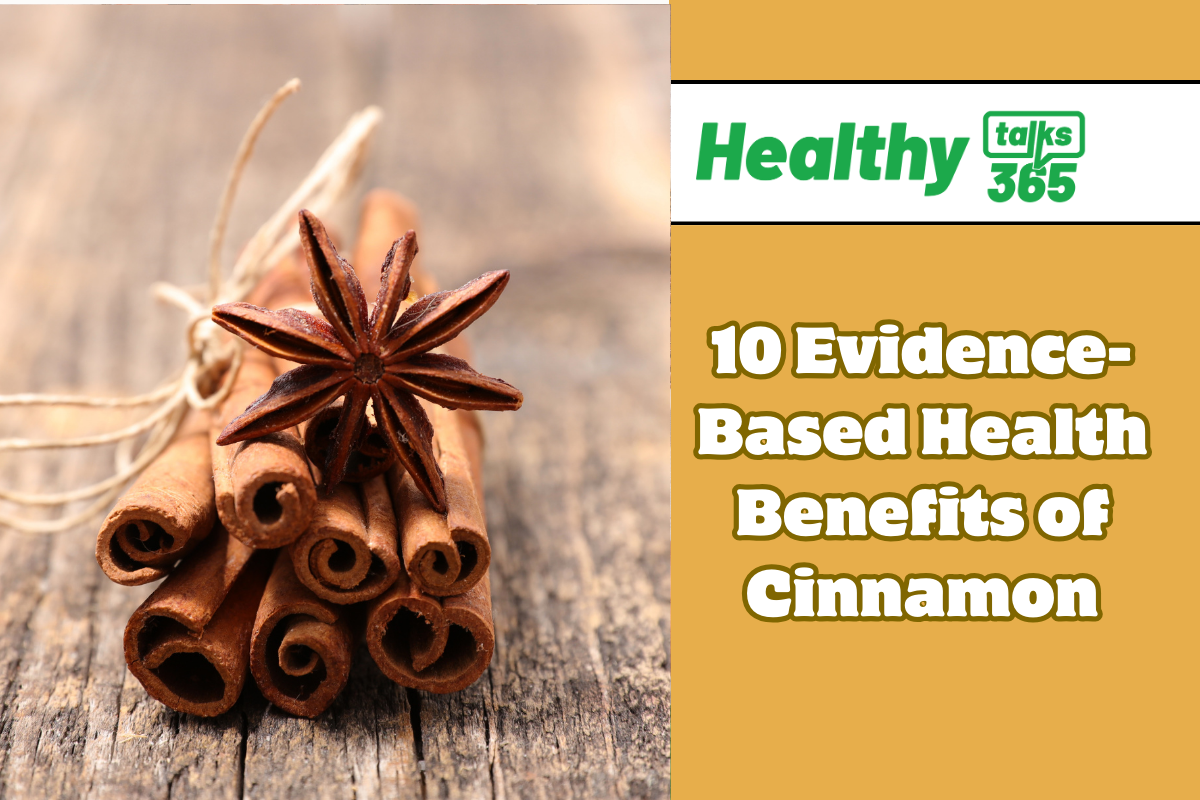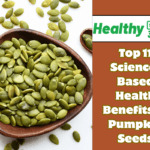10 Evidence-Based Health Benefits of Cinnamon
1. Cinnamon is healthy because of Antioxidant property
Cinnamon is good for you because it has powerful antioxidants. These are substances that protect your cells from damage caused by harmful molecules called free radicals. These radicals can lead to health problems like heart disease, cancer, and diabetes.
With its antioxidants, cinnamon can help neutralize these harmful molecules, reducing the risk of chronic diseases and keeping you healthy.
Cinnamon’s antioxidants can also reduce inflammation in your body. Inflammation is a key factor in many diseases like arthritis and Alzheimer’s disease. By lowering inflammation, cinnamon may help ease symptoms and improve overall health.

2. Cinnamon is healthy because of Anti-inflammatory
Cinnamon is good for you because it helps reduce inflammation in your body. Inflammation is when your body gets swollen and sore, which can lead to health problems like arthritis, heart disease, and diabetes.
Cinnamon has stuff in it that can stop your body from making too many inflammatory molecules. This can lower inflammation and maybe reduce the risk of these health problems.
Adding cinnamon to your food or drinks is an easy way to get its anti-inflammatory benefits. It could help keep your joints, heart, and immune system healthy.
Read Also:
Best Exercises And Yoga Poses For A Healthy Lifestyle
3. Cinnamon lowers heart disease
Cinnamon might help keep your heart healthy. Some studies suggest that certain things in cinnamon can lower the risk of heart disease by making your heart markers better.
For example, cinnamon can help lower “bad” cholesterol levels. It might also reduce triglycerides, which are fats in your blood that can lead to heart disease when they’re too high.
Cinnamon could also be good for your blood pressure. By bringing it down, cinnamon might lower your chances of having a heart attack or stroke.
4. Cinnamon has anti-fungal
Cinnamon can fight against fungus, which means it can help treat fungal infections. This is because of certain stuff in cinnamon, like cinnamaldehyde.
Using cinnamon in your food or on your skin might help prevent or get rid of fungal infections, like athlete’s foot or ringworm.
But remember, cinnamon isn’t a replacement for medical treatment. If you have a fungal infection, it’s best to see a doctor. They can give you the right treatment, which might include using cinnamon as part of it.

5. Cinnamon Enhances the taste
Cinnamon makes food taste better. Its unique flavor adds a nice, spicy touch to different dishes and drinks.
When you use cinnamon in cooking or baking, it brings out a warm, comforting taste that makes your food more delicious. It works well with sweet and savory foods, giving them a richer flavor.
Cinnamon is easy to use in many recipes. You can sprinkle it on oatmeal, mix it into drinks like hot cocoa, or add it to savory dishes like curries or stews.
6. Cinnamon Improves the health
One of its main benefits is helping to control blood sugar levels. It can make your body more sensitive to insulin, which is helpful for managing diabetes.
Cinnamon also has antioxidants, which fight against harmful molecules in your body called free radicals. By getting rid of these free radicals, cinnamon might lower the risk of chronic diseases like heart disease and cancer.
Moreover, cinnamon can reduce inflammation in your body. This is important because chronic inflammation is linked to many health problems like arthritis and heart disease.
Read Also:
How To Reduce Your Weight Under 45 Days: Tips And Solutions
7. Cinnamon Helps in weight loss
Cinnamon is sometimes said to help with weight loss, but more research is needed to be sure. It might help in a few ways.
First, cinnamon might help keep your blood sugar levels steady. This can reduce cravings for sugary foods and prevent overeating.
Cinnamon might also improve how your body uses insulin, which helps it process carbs better. This could mean less fat stored in your body. Some studies suggest cinnamon could speed up your metabolism, helping you burn more calories even when you’re not active.
8. Cinnamon Improves the gut health
Cinnamon might act like food for the good bacteria in your gut, helping them grow and stay healthy. It also has stuff in it that can fight against bad bacteria in your gut, keeping it clean and healthy.
Additionally, cinnamon might help reduce inflammation in your gut, which can help with digestive problems like IBS or IBD. This might help keep your blood sugar levels steady, which can indirectly support gut health.
Adding cinnamon to your diet is simple and tasty. You can sprinkle it on foods like yogurt or oatmeal, or mix it into drinks like smoothies.

9. Cinnamon Prevents blood clotting
Cinnamon is thought by some to stop blood from clotting. It has compounds that might help with this. One of these compounds is called coumarin, which can interfere with the blood’s clotting process. This means it could help stop blood clots from forming. Cinnamon also has other compounds like cinnamaldehyde and eugenol that might have similar effects.
However, it’s important to be cautious when using cinnamon for this purpose. More research is needed to fully understand how cinnamon affects blood clotting.
Also, using too much cinnamon or taking cinnamon supplements could be harmful, especially because of the coumarin it contains in large amounts. This could potentially harm your liver.
10. Cinnamon Can cure impotence
There is no proof that cinnamon can cure impotence. Even though cinnamon has health benefits, like being full of antioxidants and reducing inflammation, which might help in fixing impotence or erectile dysfunction.
Impotence, also called erectile dysfunction, is a complicated problem with different reasons behind it. These reasons can be physical or emotional. It’s important to figure out what’s causing it and get the right treatment.
If you’re having trouble with erectile dysfunction, it’s best to talk to a doctor.




